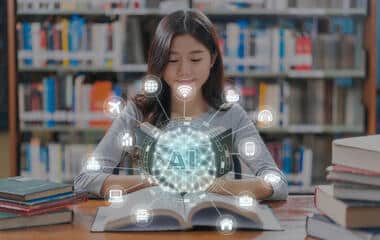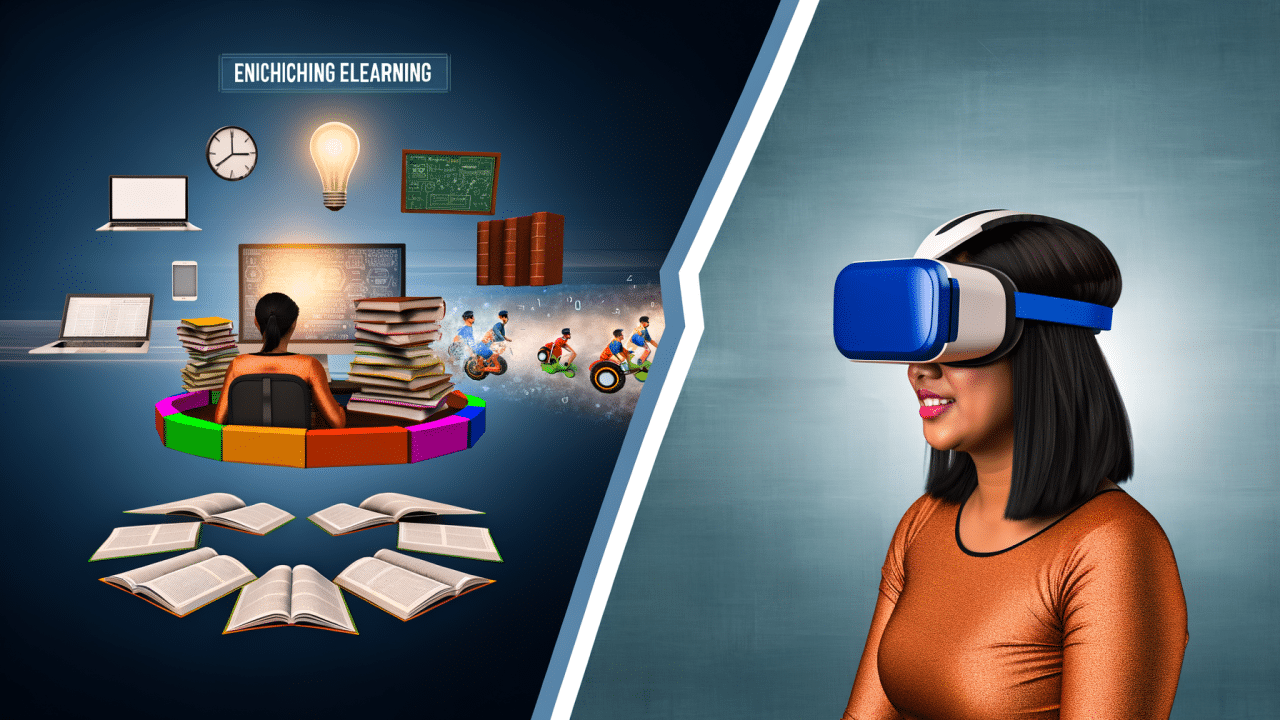As 2025 approaches, the eLearning industry keeps advancing swiftly. Educational technology has significantly changed the ways in which students learn, engage with, and remember information. Notable advancements have occurred in recent years, spanning from gamified modules to platforms driven by AI. However, there is constant potential for improvement. As 2025 approaches, the eLearning sector is rapidly changing. Technology in education has entirely transformed the way students obtain, interact with, and retain information. In recent years, considerable advancements have occurred, spanning from gamified elements to AI-powered systems. There is always space for enhancement, nonetheless. These seven innovations in online education are our leading choices for 2025, as they possess the capability to entirely change the eLearning landscape and leverage the incredible opportunities offered by digital libraries like Mintbook.
Online Learning Innovations: Our Wish List for 2025
Here are the top eLearning trends that can shape the coming years in the field of eLearning. We put forth our wish list as well.
-
Seamless Integration of Digital Libraries into Learning Platforms
The rise of digital libraries like Mintbook, serving as vast reservoirs of information, represents one of the most significant breakthroughs in eLearning. Along with offering various professional and academic resources, digital libraries improve accessibility for learners across all age groups.
We expect enhanced integration of the digital library and learning management system (LMS) by 2025. Consider a system that allows students to access Mintbook’s extensive library of research materials, periodicals, and eBooks straight from their course dashboard. This would improve the learning process by giving students on-demand access to materials that support their classes.

-
AI-Powered Personalized Learning Paths
By customizing information for each student, artificial intelligence (AI) has already caused a stir in the eLearning space. The 2025 wish list, however, aims for an even closer relationship between AI and resources like Mintbook’s digital library.
eLearning platforms can assess a learner’s progress, preferences, and knowledge gaps by utilizing artificial intelligence. The platform can recommend particular items from Mintbook’s digital collection based on this information. For example, the AI might suggest pertinent eBooks or articles to help students who are having trouble with a certain physics topic. A more targeted and effective educational journey is guaranteed by this individualized learning technique.
-
Gamification with Augmented Reality (AR) and Virtual Reality (VR)
While eLearning gamification has become popular in recent times, its complete potential has yet to be achieved. By 2025, we expect eLearning platforms to create captivating educational experiences utilizing gamified AR and VR technologies. Consider AR simulations for medical students performing procedures or virtual field tours through historic civilizations.
By adding AR and VR-friendly content to its digital collection, Mintbook might make a substantial contribution to this breakthrough. This would give students access to pertinent supplemental reading materials while allowing them to investigate difficult ideas virtually.
-
Community-Driven Learning Models
Nowadays, learning is not a single endeavor. 2025 may mark the emergence of community-driven learning models due to the growing popularity of social learning. These approaches place a strong emphasis on group projects, conversations, and peer-to-peer learning.
These approaches can be supported by digital libraries such as Mintbook, which provide resource-sharing capabilities, discussion boards, and shared workspaces. Within a virtual community, professionals and students could annotate shared eBooks, work together on research projects, and share ideas. This cooperative method encourages greater involvement and comprehension of the topic.
-
Enhanced Multilingual Support
Multilingual accessibility is necessary due to the global nature of eLearning. In order to guarantee inclusivity, we anticipate that platforms will offer improved multilingual content and translation capabilities by 2025.
By adding information in several languages to its library, Mintbook may take the lead in this effort and serve a wide range of users. Furthermore, adding real-time translation capabilities to the digital library would eliminate language barriers and enable students all around the world to access high-quality education.
-
Improved Offline Accessibility
Offline accessibility is essential in areas with poor internet availability. By 2025, a more thorough strategy will be required, even though many platforms only provide a few offline services.
Mintbook might offer more sophisticated offline features that would let users download whole well-chosen lesson plans in addition to eBooks. Students could continue their studies offline and have their work updated when they re-connect to the internet thanks to the smooth syncing features. For underprivileged communities and distant learners, this feature would be revolutionary.

-
Integration of Real-World Applications into Curriculum
In education, the disconnect between theoretical understanding and practical application has long been a problem. We anticipate seeing more curriculum designs that prioritize real-world applications by 2025.
Mintbook and other platforms can work with eLearning providers to curate resources that meet industry standards. Mintbook’s library, for example, offers lessons, case studies, and tools utilized in real-world situations to students interested in data science. By merging these aspects, students would be more equipped for their careers by acquiring the knowledge and skills required to thrive in their jobs.
Mintbook’s Role in Shaping the Future of eLearning
Mintbook, one of the top suppliers of digital library solutions, has already made great progress in democratizing access to high-quality learning materials. Its extensive material library serves corporate learners, colleges, universities, and schools, making it a vital component of contemporary education.
Mintbook occupies a distinctive role in facilitating these eLearning developments in the following manners:
Extensive Content Repository: Mintbook’s virtual library functions as a complete resource for learners, offering a wide array of eBooks, audiobooks, films, and engaging materials.
Tailored Solutions: Organizations can adapt Mintbook’s offerings to align with their teaching methods and educational programs.
Intuitive Design: The platform’s intuitive design allows users to easily navigate and obtain the resources they need.
Focus on Accessibility: Mintbook is at the forefront of inclusive education due to its offline access options and language assistance.
Mintbook could significantly influence the future trajectory of education by incorporating advanced eLearning technologies.
Online Learning Innovations and The Future of eLearning
The increasing demand for individualized, inclusive, and immersive learning experiences is reflected in the 2025 wish list. These developments will be largely driven by digital libraries like Mintbook, which will guarantee that students always have access to the materials they require.
It is obvious that cooperation between technology companies, academic institutions, and digital libraries will be essential to success as the eLearning landscape develops further. We can create a future where education is not only available but also interesting and influential for students worldwide by adopting these technologies.
Digital education is the future, and 2025 promises to be an exciting year for learning, with companies such as Mintbook leading the way. Together, let’s make this wish list come true.

